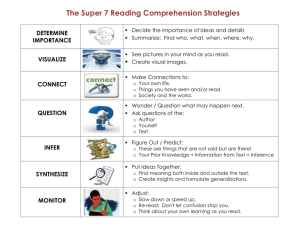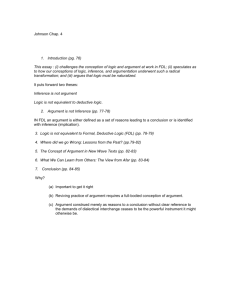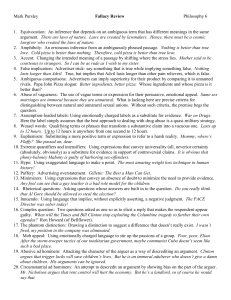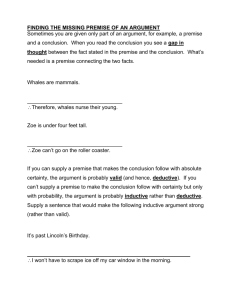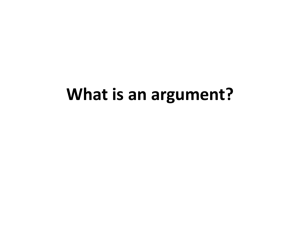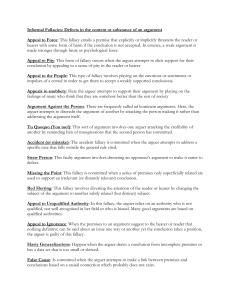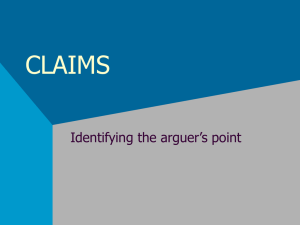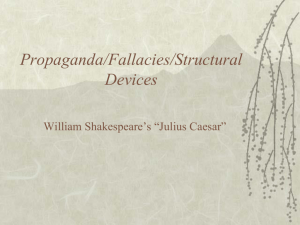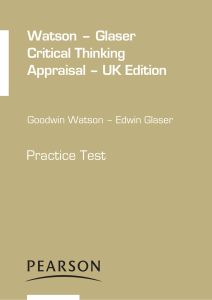15 Fallacies
advertisement
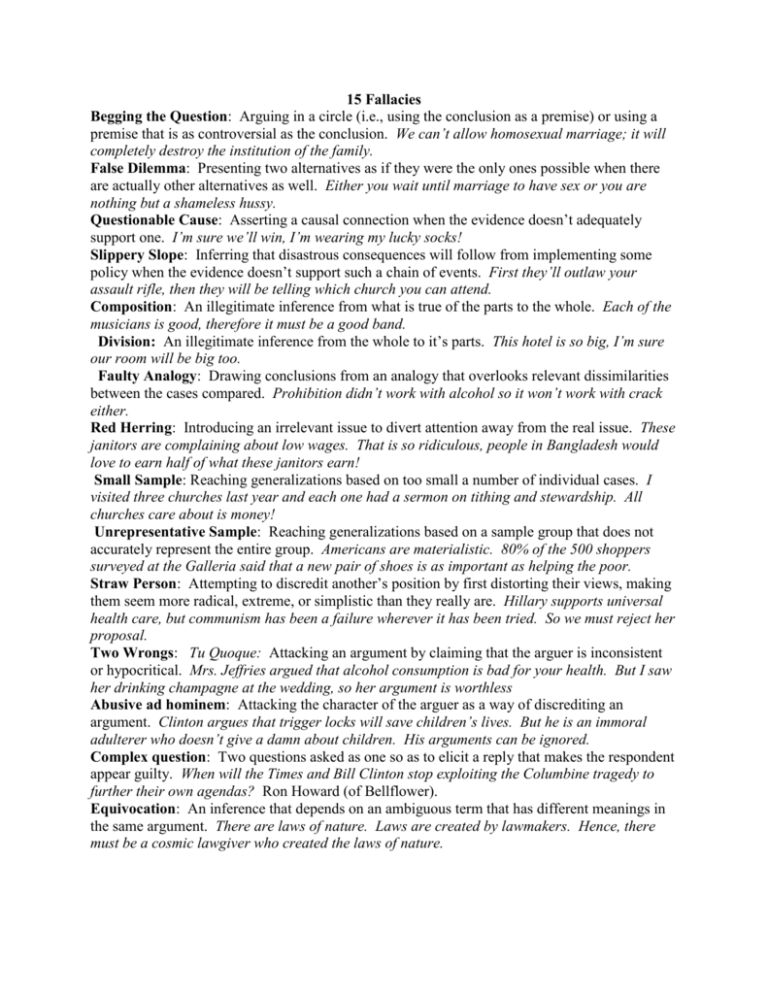
15 Fallacies Begging the Question: Arguing in a circle (i.e., using the conclusion as a premise) or using a premise that is as controversial as the conclusion. We can’t allow homosexual marriage; it will completely destroy the institution of the family. False Dilemma: Presenting two alternatives as if they were the only ones possible when there are actually other alternatives as well. Either you wait until marriage to have sex or you are nothing but a shameless hussy. Questionable Cause: Asserting a causal connection when the evidence doesn’t adequately support one. I’m sure we’ll win, I’m wearing my lucky socks! Slippery Slope: Inferring that disastrous consequences will follow from implementing some policy when the evidence doesn’t support such a chain of events. First they’ll outlaw your assault rifle, then they will be telling which church you can attend. Composition: An illegitimate inference from what is true of the parts to the whole. Each of the musicians is good, therefore it must be a good band. Division: An illegitimate inference from the whole to it’s parts. This hotel is so big, I’m sure our room will be big too. Faulty Analogy: Drawing conclusions from an analogy that overlooks relevant dissimilarities between the cases compared. Prohibition didn’t work with alcohol so it won’t work with crack either. Red Herring: Introducing an irrelevant issue to divert attention away from the real issue. These janitors are complaining about low wages. That is so ridiculous, people in Bangladesh would love to earn half of what these janitors earn! Small Sample: Reaching generalizations based on too small a number of individual cases. I visited three churches last year and each one had a sermon on tithing and stewardship. All churches care about is money! Unrepresentative Sample: Reaching generalizations based on a sample group that does not accurately represent the entire group. Americans are materialistic. 80% of the 500 shoppers surveyed at the Galleria said that a new pair of shoes is as important as helping the poor. Straw Person: Attempting to discredit another’s position by first distorting their views, making them seem more radical, extreme, or simplistic than they really are. Hillary supports universal health care, but communism has been a failure wherever it has been tried. So we must reject her proposal. Two Wrongs: Tu Quoque: Attacking an argument by claiming that the arguer is inconsistent or hypocritical. Mrs. Jeffries argued that alcohol consumption is bad for your health. But I saw her drinking champagne at the wedding, so her argument is worthless Abusive ad hominem: Attacking the character of the arguer as a way of discrediting an argument. Clinton argues that trigger locks will save children’s lives. But he is an immoral adulterer who doesn’t give a damn about children. His arguments can be ignored. Complex question: Two questions asked as one so as to elicit a reply that makes the respondent appear guilty. When will the Times and Bill Clinton stop exploiting the Columbine tragedy to further their own agendas? Ron Howard (of Bellflower). Equivocation: An inference that depends on an ambiguous term that has different meanings in the same argument. There are laws of nature. Laws are created by lawmakers. Hence, there must be a cosmic lawgiver who created the laws of nature.
